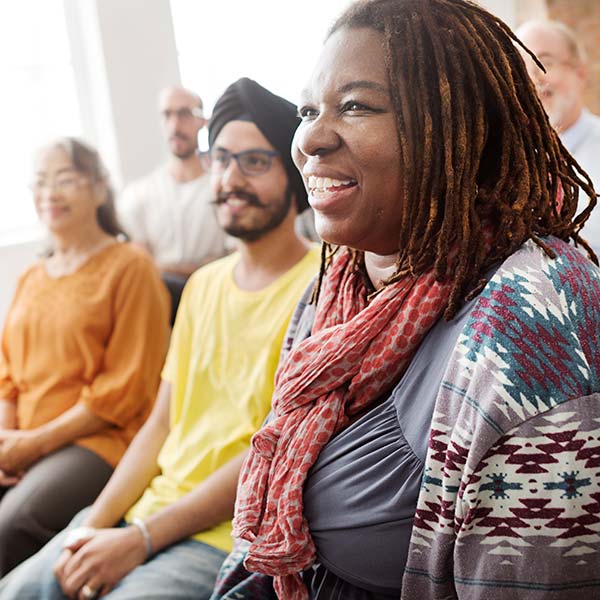Practical Life Skills
Getting Started
- Download the Welcome to Your New Home booklet (English, Arabic, Amharic, Burmese, French, Hmong, Karen, Kishwahili, Nepali, Russian). Go through the booklet with the family. Discuss pictures that show something unsafe and describe what is unsafe in the pictures.
- Discuss each health concern listed below and indicate whether you should A) care for it yourself, B) make an appointment with the doctor’s office, or C) go to a hospital or emergency room:
- Chest/ heart hurts; causing pain
- Runny nose
- Ear ache for three days
- Small cut on finger
- Broken ankle
- A large, red rash that covers your entire back
- Discuss if you were at a hospital and needed an interpreter, what would you say or do to ask for one?
- Discus how to tell a friend directions to get from your home to the grocery store.
- Discuss how you use the RTD bus system. Talk about two services provided by LFSRM that help refugees resettle or adjust to life in the U.S..

Around the Home Activities
- Plan a community picnic with the family and their neighbors at a park or other grassy space within walking distance of their home. Either bring enough culturally applicable food for everyone or ask each family to bring something to contribute. Spend time talking, playing games, doing outside activities with the kids, getting to know them. This is great because it brings you as the mentor team closer to the family AND their community. The family can also use this time to make better relationships with their neighbors.
- Make and share a meal with your refugee family. Go to their house and make something American or try to make something similar to their typical cuisine. Make sure to double check about allergies and cultural/religious taboos.
- Teach fun and simple board games/ card games to the family. UNO is easy to teach even when there is a language barrier. Make it an opportunity to teach some simple words that are used in the game (colors, numbers, directions, etc.).
- Share a few pictures of your family, vacations you have been on, and good memories. Show the pictures to your refugee family and try your best to explain interesting things. Let them learn about you. If they have any photos, the family will almost certainly bring out theirs too.
- Bring a fun and age appropriate movie to their house (if they have a TV and DVD player) and watch it together with the subtitles on. If they do not have a TV, maybe bring your laptop or invite them to your house.
- Talk about the flu. This website provides seasonal flu information and materials for refugees including how to prevent it in a variety of languages.
City/Mountain Activities
- It is fun to expose refugees to what makes living in Colorado great! Take your family to see the mountains. Go to Mt. Evans, Rocky Mountain National Park, Red Rocks, Garden of the Gods, or some other favorite spot. Make sure to budget for gas money, food for everyone, and park entrance fees (if applicable). Dress appropriately for the altitude that you are going to and bring lots of water. Unless you are confident that your refugee family will want to, don’t plan on doing a lot of hiking.
- Refugees don’t have a lot of money. Therefore, it is great to teach them how to make their money go further and last longer. Take them to a local thrift store and help them pick out some new clothes. Often, they do not know what clothing costs are like here. Consider taking them to a regular clothing store first (don’t buy anything) then visit the thrift store. If there are garage sales happening, this can be an even better way to save money. Make sure that the family has cash for it and knows that they can barter.
- Take the family to a local farmer’s market. Get some fresh produce, teach them some new words, enjoy the festive atmosphere, and let the kids run around and see new things.
Additional Information/Activity Ideas:
